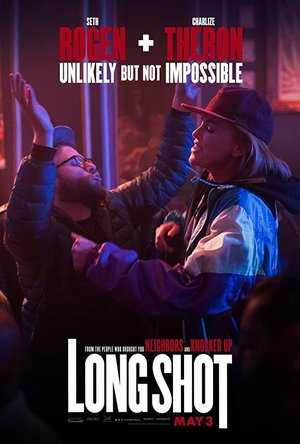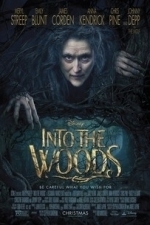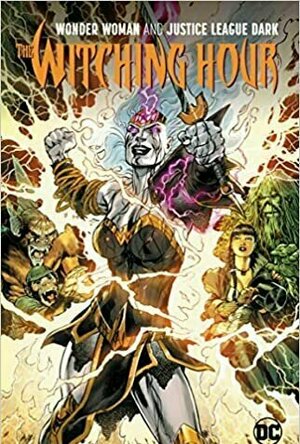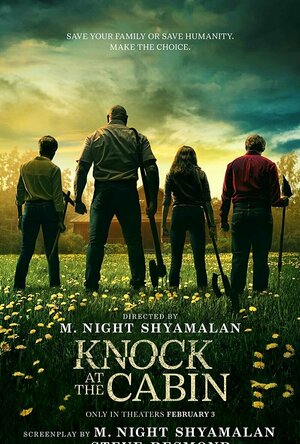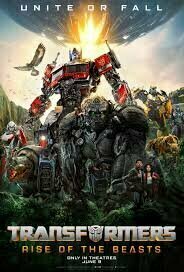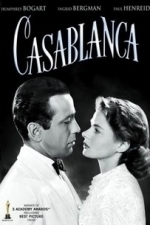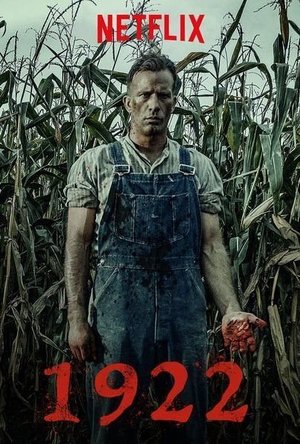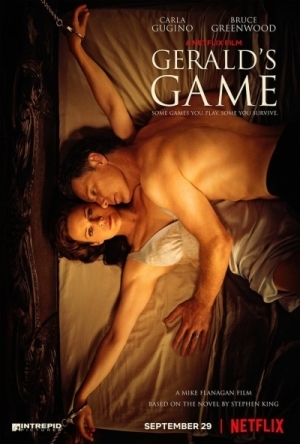Search
Search results
Gareth von Kallenbach (980 KP) rated Long Shot (2019) in Movies
Jul 2, 2019
When his small paper is bought out but a large media conglomerate the free-spirited journalist Fred Flarsky (Seth Rogen) quits rather write for a company he believes has a low moral compass. His best friend Lance (O’Shea Jackson Jr.) takes him out on the town to drown his sorrows. They decide to go to a charity function to get free drinks and watch Boyz II Men. As chance would have it Fred’s babysitter from high school, Charlotte Field (Charlize Theron), is also there. Charlotte happens to be one of the most powerful women in the world. She is currently the Secretary of State and has her eyes set on the on the White House. But she recognizes Fred and they connect for a few moments. This chance meeting seems fortuitous for both. Fred needs a job and Charlotte is in need of a writer to help punch up her speeches. Fred also gets the chance to travel the world with his high school crush. Even though Fred isn’t your normal member of a government official’s entourage, dresses like a child, has a scraggly beard and looks high even when not, he can write. So he gets the chance to write entire speeches. As his role increases he needs to get to know this version of Charlotte a little better, rather than the girl he know in high school. They begin to spend more and more time together getting to know each other. Then a near death experience in Manilla leads to a wild night between the odd couple. But rather than a onetime thing the two begin sneaking away together. But as Charlotte heads toward a Presidential Campaign it seem inevitable that this secret relationship needs to end or go public.
This Jonathan Levine (The Night Before, Snatched) directed romantic comedy is predictable with flares of originality. The cast is great. Rogen and Theron have good chemistry and do well. The supporting cast, O’Shea (Straight Outta Compton) as well as June Diane Raphael (Blockers, The Disaster Artist), Ravi Patel (T.V. series Wrecked, Grandfathered), Andy Serkis (Black Panther, The Lord of the Rings Trilogy) and others, all have fun moments. Bob Odenkirk (T.V.’s Better Call Saul) is very funny in his role as President Chambers. The comedy is fun, but raunchy at times. There were definitely laugh out loud moments. But some of the jokes were predictable and other good jokes were spoiled by the trailers, so avoid if possible. The story was also pretty predictable with the outcome never really in doubt but the ride was fun and had both really good moments and some that fell flat. It blended what could be believable politics with some things you know would not be, or you really hope couldn’t be, done by someone in a powerful government position.
I thought the film was good but it did run a little long, 125 minutes. I think it would be a good date movie but definitely leave the kids at home due to prevalent drug use and raunchy moments. I went in with low expectations and that could also help. But if you need a laugh or non-super hero movie to see this is worth the ticket price.
This Jonathan Levine (The Night Before, Snatched) directed romantic comedy is predictable with flares of originality. The cast is great. Rogen and Theron have good chemistry and do well. The supporting cast, O’Shea (Straight Outta Compton) as well as June Diane Raphael (Blockers, The Disaster Artist), Ravi Patel (T.V. series Wrecked, Grandfathered), Andy Serkis (Black Panther, The Lord of the Rings Trilogy) and others, all have fun moments. Bob Odenkirk (T.V.’s Better Call Saul) is very funny in his role as President Chambers. The comedy is fun, but raunchy at times. There were definitely laugh out loud moments. But some of the jokes were predictable and other good jokes were spoiled by the trailers, so avoid if possible. The story was also pretty predictable with the outcome never really in doubt but the ride was fun and had both really good moments and some that fell flat. It blended what could be believable politics with some things you know would not be, or you really hope couldn’t be, done by someone in a powerful government position.
I thought the film was good but it did run a little long, 125 minutes. I think it would be a good date movie but definitely leave the kids at home due to prevalent drug use and raunchy moments. I went in with low expectations and that could also help. But if you need a laugh or non-super hero movie to see this is worth the ticket price.
Gareth von Kallenbach (980 KP) rated Into the Woods (2014) in Movies
Aug 6, 2019
For those seeking a big dose of magic this holiday season, Disney’s “Into the Woods” aims to deliver just that. Adapted to the silver screen from the original Broadway musical production by Stephen Sondheim, the plot intertwines several of the Grimm Brothers’ fairy tales to create one story.
At the center of the story is The Baker (James Corden) and The Baker’s Wife (Emily Blunt) who are desperate to break the curse, which keeps them from having a child. The Witch (Meryl Streep) who placed the curse weaves a devious web, entangling all of the characters in a tumultuous adventure.
Streep is terrifying and highly entertaining to watch in her role. Her vocal and facial expressions exude a character of pure evil.
Other characters incorporated into the story include Little Red Riding Hood (Lilla Crawford), Cinderella (Anna Kendrick), and Rapunzel (Mackenzie Mauzy), just to name a few.
Disney toned down several aspects of the original plot, which would not have been appropriate for children. However, the story still maintains a racy mix of seriousness and humor. Each scene highlights the absurdities of fairy tales only noticed by adults.
One scene which will have adults rolling with laughter is the sudden duet between Cinderella’s Prince (Chris Pine) and his brother, Rapunzel’s Prince (Billy Magnusson). They sing about the challenges of literally chasing the ladies of their desire and their refusal to acknowledge any possibility of rejection.
Certain scenes test the limits of appropriateness and are almost perverse, or perhaps even err on the side horror.
One example of this is the role of The Wolf (Johnny Depp). As he stalks Little Red Riding Hood through the forest he sings about how she is fresh, supple, and young. Through the lyrics and the choice to use a human in the role, rather than a CGI wolf, a strange glimmer of pedophilia surfaces. This is taken a step further when The Wolf reveals a jacket full of candy in his attempt to lure the child.
The element of horror enters the film in a scene where Cinderella’s Stepmother cuts the feet of the ugly stepsisters to try and force them into the glass slipper offered by the Prince. This is not graphically shown. However, it is implied as she waves around a knife and sings about it.
Despite a few of these adult twists, the film should be fun for the whole family to watch. Just keep in mind that, like the original tales, some short scenes may be a bit horrifying for young children.
As is tradition with fairy tales, the good comes with the bad. The moral messages of each fairy tale are combined into one larger message: One should be careful what they wish for, because in the grander scheme of life the ramifications of those wishes may be unforeseen.
It is also a visually stunning piece of work. Nothing comes off as overdone or cheesy. The tales truly come to life and transport viewers into a land of fantasy.
The majority of the film is very exciting and fast moving. That being said, the film is lengthy with a runtime of 124 minutes. Unfortunately, the last 30 minutes begins to drag on and feel tiring. This would have been an easy fix if perhaps the last few songs had been shortened, or the last thirty minutes was cut completely.
All in all, the film is a truly magical cinematic experience. I give “Into the Woods” 4 out of 5 stars.
At the center of the story is The Baker (James Corden) and The Baker’s Wife (Emily Blunt) who are desperate to break the curse, which keeps them from having a child. The Witch (Meryl Streep) who placed the curse weaves a devious web, entangling all of the characters in a tumultuous adventure.
Streep is terrifying and highly entertaining to watch in her role. Her vocal and facial expressions exude a character of pure evil.
Other characters incorporated into the story include Little Red Riding Hood (Lilla Crawford), Cinderella (Anna Kendrick), and Rapunzel (Mackenzie Mauzy), just to name a few.
Disney toned down several aspects of the original plot, which would not have been appropriate for children. However, the story still maintains a racy mix of seriousness and humor. Each scene highlights the absurdities of fairy tales only noticed by adults.
One scene which will have adults rolling with laughter is the sudden duet between Cinderella’s Prince (Chris Pine) and his brother, Rapunzel’s Prince (Billy Magnusson). They sing about the challenges of literally chasing the ladies of their desire and their refusal to acknowledge any possibility of rejection.
Certain scenes test the limits of appropriateness and are almost perverse, or perhaps even err on the side horror.
One example of this is the role of The Wolf (Johnny Depp). As he stalks Little Red Riding Hood through the forest he sings about how she is fresh, supple, and young. Through the lyrics and the choice to use a human in the role, rather than a CGI wolf, a strange glimmer of pedophilia surfaces. This is taken a step further when The Wolf reveals a jacket full of candy in his attempt to lure the child.
The element of horror enters the film in a scene where Cinderella’s Stepmother cuts the feet of the ugly stepsisters to try and force them into the glass slipper offered by the Prince. This is not graphically shown. However, it is implied as she waves around a knife and sings about it.
Despite a few of these adult twists, the film should be fun for the whole family to watch. Just keep in mind that, like the original tales, some short scenes may be a bit horrifying for young children.
As is tradition with fairy tales, the good comes with the bad. The moral messages of each fairy tale are combined into one larger message: One should be careful what they wish for, because in the grander scheme of life the ramifications of those wishes may be unforeseen.
It is also a visually stunning piece of work. Nothing comes off as overdone or cheesy. The tales truly come to life and transport viewers into a land of fantasy.
The majority of the film is very exciting and fast moving. That being said, the film is lengthy with a runtime of 124 minutes. Unfortunately, the last 30 minutes begins to drag on and feel tiring. This would have been an easy fix if perhaps the last few songs had been shortened, or the last thirty minutes was cut completely.
All in all, the film is a truly magical cinematic experience. I give “Into the Woods” 4 out of 5 stars.

Solar Family: Planets for Kids
Education, Games and Stickers
App
**LEARN interesting facts about the PLANETS in the SOLAR SYSTEM with INTERACTIVE STORY and FUN...
Joe Goodhart (27 KP) rated Wonder Woman & Justice League Dark: The Witching Hour in Books
Nov 30, 2020
Marvel continues to push me away, as the comics market is littered with bad editorial decisions and choices. With me, all it has succeeded in doing was alienating me and reminding me of how much I love DC (despite the trainwreck of lateness that is DOOMSDAY CLOCK)... especially the character of Superman!
That said, I have been playing catch-up with a number of titles, as I try to determine which ones I will specifically be subscribed to on Comixology. Besides the Bendis-helmed SUPERMAN books, I am also leaning toward JUSTICE LEAGUE DARK as the next one to add to the list. It was with the conclusion of WW & JLD: THE WITCHING HOUR that the decision to add JLD to my subscription list was cemented!
I knew of Tynion's name prior to undertake the reading of it. Not really familiar to his writing style, just that his name carries a lot of weight in the comic world. Having witnessed his writing here, I can see where that aforementioned "weight" comes from. Seriously, this was a solid read, from beginning to end!
I feel that Zatanna is a character that most people don't seem to get write, which seems odd unto itself. However, here, she was frikkin' brilliant! Strong-willed, with a good heart and moral compass. I wasn't sure how I would like her without her token "top hat, coattails and fishnets", but I did (partly due also to recent mental changes on my part, as I find myself looking at the female characters, in both the DC Universe as well as Marvel, as more than just "fanboy eye candy")! With Tynion's writing, as well as the uber-talents of Jesus Merino, Amanuela Lupachino, Alvaro Martinez Bueno, Fernando Blanco and Miguel Mendonca on art, Zee was truly in good hands!
Swamp Thing was another who I wasn't sure how he would be handled by someone other than Alan Moore (who, whether he's a kook now or not now, was still one of the best ST writers, outside of ST's creator, Len Wein). My fears and initial apprehension were quickly dispelled, as Tynion, along with the aforementioned artists on this story, turned out out one hell of a good Earth Elemental! I even found myself warming to the faux floral dreds that Swampy was sportin'!
Besides my excitement at how well Zee and ST were handled, the rest of the players, including Wonder Woman, were written well, with attention given to have them be more than just comic tropes. All the characters contributed to making this a tense, magic-heavy story, with ramifications carrying over into the JLD regular series.
And one last thing.. Circe. Not really a spoiler, just mentioning her. I always thought her character was kinda meh, especially the garb she had been given over the years. However, here, Tynion did awesome things with her, writing (and dressing) in a manner that would not be out of place in SANDMAN! Soooo COOL!!!
Look, if you like your brain to be crushed by angst and characters who keep getting rebooted what seems like every/every other year, then, by all means, continue to ride the Marvel Trainwreck. If you want a story you can sink your teeth into, then look no further. This truly one I can not recommend enought!
That said, I have been playing catch-up with a number of titles, as I try to determine which ones I will specifically be subscribed to on Comixology. Besides the Bendis-helmed SUPERMAN books, I am also leaning toward JUSTICE LEAGUE DARK as the next one to add to the list. It was with the conclusion of WW & JLD: THE WITCHING HOUR that the decision to add JLD to my subscription list was cemented!
I knew of Tynion's name prior to undertake the reading of it. Not really familiar to his writing style, just that his name carries a lot of weight in the comic world. Having witnessed his writing here, I can see where that aforementioned "weight" comes from. Seriously, this was a solid read, from beginning to end!
I feel that Zatanna is a character that most people don't seem to get write, which seems odd unto itself. However, here, she was frikkin' brilliant! Strong-willed, with a good heart and moral compass. I wasn't sure how I would like her without her token "top hat, coattails and fishnets", but I did (partly due also to recent mental changes on my part, as I find myself looking at the female characters, in both the DC Universe as well as Marvel, as more than just "fanboy eye candy")! With Tynion's writing, as well as the uber-talents of Jesus Merino, Amanuela Lupachino, Alvaro Martinez Bueno, Fernando Blanco and Miguel Mendonca on art, Zee was truly in good hands!
Swamp Thing was another who I wasn't sure how he would be handled by someone other than Alan Moore (who, whether he's a kook now or not now, was still one of the best ST writers, outside of ST's creator, Len Wein). My fears and initial apprehension were quickly dispelled, as Tynion, along with the aforementioned artists on this story, turned out out one hell of a good Earth Elemental! I even found myself warming to the faux floral dreds that Swampy was sportin'!
Besides my excitement at how well Zee and ST were handled, the rest of the players, including Wonder Woman, were written well, with attention given to have them be more than just comic tropes. All the characters contributed to making this a tense, magic-heavy story, with ramifications carrying over into the JLD regular series.
And one last thing.. Circe. Not really a spoiler, just mentioning her. I always thought her character was kinda meh, especially the garb she had been given over the years. However, here, Tynion did awesome things with her, writing (and dressing) in a manner that would not be out of place in SANDMAN! Soooo COOL!!!
Look, if you like your brain to be crushed by angst and characters who keep getting rebooted what seems like every/every other year, then, by all means, continue to ride the Marvel Trainwreck. If you want a story you can sink your teeth into, then look no further. This truly one I can not recommend enought!
BankofMarquis (1832 KP) rated Knock at the cabin (2023) in Movies
Mar 31, 2023
Disappointing Ending
Writer/Director M. Night Shyamalan is a hit or miss film maker and that is because his films (usually) rely on a “twist” in the proceedings that make the movie you are watching turn into something different. Sometimes it works (the classic THE SIXTH SENSE), sometimes it doesn’t (THE HAPPENING). But, at least he has the courage of his convictions and you have to respect him for that. However, in KNOCK AT THE CABIN, Shyamalan is doing something that might undercut those twists – he’s beginning to pull his punches.
KNOCK AT THE CABIN opens with an interesting premise – a couple and their daughter are at a remote cabin (with, conveniently enough, no cell phone service) when 4 strangers show up and declare that the world will end unless one of the 3 is sacrificed to stop the upcoming carnage.
It’s a good idea that has, inherently, some moral complications and one quickly jumps onto the side of the 3 in the cabin, writing off the 4 strangers as insane, but as events transpire – and the seeming sincerity of the 4 strangers comes into focus – one starts to have doubts.
Shyamalan does a professional job of weaving the tension into the first ¾ of this film as the 3 in the cabin are trying to make logical sense out of the predicament they are in while the 4 strangers become more and more desperate in their attempts to convince the trio in the cabin to sacrifice one of themselves. This is a director sure of himself and slowly, strongly leading the audience to the ending.
He helps himself by casting some VERY good performers in a film that, basically, takes place in one room. Jonathan Groff (Broadway’s HAMILTON) and Ben Aldridge (Thomas Wayne in the TV Series PENNYWORTH) are convincing and believable as the besieged couple, while David Bautista (Drax in the GUARDIANS OF THE GALAXY films), Rupert Grint (yes, Ron Weasley from the HARRY POTTER films) and newcomer (at least to me) Abby Quinn (RADIUM GIRLS) counterbalance these two nicely. Special notice needs to be made of the 4th person knocking on the cabin, Nikki Amuka-Bird (THE OUTFIT) and youngster Kristen Cui – who both bring much needed pathos and humanity to a film that could have turned into an out-of-control testosterone fest, but ended up being grounded by these two.
So, all of this adds up to a very good time at the movie theater – providing that Shyamalan can stick the landing of this piece.
Alas, he does not. And he does something worse – he pulls his punches as the outcome of one of the characters is changed from what happens to them in the 2018 novel THE CABIN AT THE END OF THE WORLD by Paul Tremblay. Shyamalan could have delivered a gut punch to the audience to accentuate the past bit of time spent with these characters (kind of like what Frank Darabont did with THE MIST) but instead decides to play it safe and lands squarely in the middle of mediocrity-land.
Your enjoyment of this film will depend on how much you like how this film ends. For the BankofMarquis, it was ¾ of a good film with a bad ending.
Letter Grade: B-
6 stars (out of 10) and you can take that to the Bank(ofMarquis)
KNOCK AT THE CABIN opens with an interesting premise – a couple and their daughter are at a remote cabin (with, conveniently enough, no cell phone service) when 4 strangers show up and declare that the world will end unless one of the 3 is sacrificed to stop the upcoming carnage.
It’s a good idea that has, inherently, some moral complications and one quickly jumps onto the side of the 3 in the cabin, writing off the 4 strangers as insane, but as events transpire – and the seeming sincerity of the 4 strangers comes into focus – one starts to have doubts.
Shyamalan does a professional job of weaving the tension into the first ¾ of this film as the 3 in the cabin are trying to make logical sense out of the predicament they are in while the 4 strangers become more and more desperate in their attempts to convince the trio in the cabin to sacrifice one of themselves. This is a director sure of himself and slowly, strongly leading the audience to the ending.
He helps himself by casting some VERY good performers in a film that, basically, takes place in one room. Jonathan Groff (Broadway’s HAMILTON) and Ben Aldridge (Thomas Wayne in the TV Series PENNYWORTH) are convincing and believable as the besieged couple, while David Bautista (Drax in the GUARDIANS OF THE GALAXY films), Rupert Grint (yes, Ron Weasley from the HARRY POTTER films) and newcomer (at least to me) Abby Quinn (RADIUM GIRLS) counterbalance these two nicely. Special notice needs to be made of the 4th person knocking on the cabin, Nikki Amuka-Bird (THE OUTFIT) and youngster Kristen Cui – who both bring much needed pathos and humanity to a film that could have turned into an out-of-control testosterone fest, but ended up being grounded by these two.
So, all of this adds up to a very good time at the movie theater – providing that Shyamalan can stick the landing of this piece.
Alas, he does not. And he does something worse – he pulls his punches as the outcome of one of the characters is changed from what happens to them in the 2018 novel THE CABIN AT THE END OF THE WORLD by Paul Tremblay. Shyamalan could have delivered a gut punch to the audience to accentuate the past bit of time spent with these characters (kind of like what Frank Darabont did with THE MIST) but instead decides to play it safe and lands squarely in the middle of mediocrity-land.
Your enjoyment of this film will depend on how much you like how this film ends. For the BankofMarquis, it was ¾ of a good film with a bad ending.
Letter Grade: B-
6 stars (out of 10) and you can take that to the Bank(ofMarquis)
Gareth von Kallenbach (980 KP) rated Transformers Rise of the Beasts (2023) in Movies
Jun 6, 2023
The latest in the long-running and popular Transformer series has arrived with “Transformers: Rise of the Beasts”. Taking a cue from the recent “Bumblebee” movie, the movie cleverly serves not only as a prequel but as a platform to introduce a series of stories leading up to the original films.
It is learned that a planet-destroying evil is fixated on obtaining a key that will allow it to travel to any point in the universe to continue its reign of destruction. The animal-based Maximals are able to escape with the key and hide it on Earth where they will also remain in secret as guardians.
Flash forward to 1994 when Noah Diaz (Anthony Ramos), following his stint in the Army is looking to find gainful employment to help his mother as well as his ailing brother. Despite being a wizard with electronics Noah is not considered to be a team player which has hampered his job prospects and leads him to consider criminal activities in an effort to obtain much-needed funds for his brother's medical bills.
In a moment of desperation, Noah attempts to steal a loaded Porsche but finds he is unable to follow through on the act as it is against his moral compass. Unknown to Noah the car is actually an Autobot named Mirage (Pete Davidson), who soon enlists Noah to help them find the key which they have recently detected.
This does not sit well with Optimus Prime (Peter Cullen), who believes that humanity will only act in your best interests and that his crew needs to find the key so that they can return to their war-ravaged, Cybertron.
It is learned that a crafty but perpetually overlooked museum intern named Elena (Dominique Fishback), has accidentally activated the key and in doing so has allowed the evil Scourge (Peter Dinklage), and his minions to zero in on its location as he attempts to obtain the key for his master and is willing to destroy all were in his way.
Noah and Elena soon find themselves paired with their unexpected allies as they race to stop the evil from obtaining both parts of the key and find themselves with some unexpected allies in the form of the Maximals.
What follows is a frantic action-adventure film that cleverly combines humor, action, dazzling visual effects, and a tail that is part Indiana Jones, and Transformers with a surprising amount of humanity.
It would be easy for the human cast the overshadowed by the massive and visually spectacular creations that frequently transform and battle it out across numerous action sequences. However, director Steven Caple Jr. takes advantage of his young talent both of whom are clearly potential stars in the making as they provide a grounding humanity to the film which makes it more than a lavish FX showcase.
The film also has an impressive era-specific soundtrack and a scene near the end that offers up some intriguing and exciting possibilities for the future. "Transformers: Rise of the Beasts" is a highly enjoyable summer action adventure as well as one the more enjoyable films in the franchise and should delight fans of the franchise and has me for the first time in a long time eagerly awaiting what comes next.
4 stars out of 5
It is learned that a planet-destroying evil is fixated on obtaining a key that will allow it to travel to any point in the universe to continue its reign of destruction. The animal-based Maximals are able to escape with the key and hide it on Earth where they will also remain in secret as guardians.
Flash forward to 1994 when Noah Diaz (Anthony Ramos), following his stint in the Army is looking to find gainful employment to help his mother as well as his ailing brother. Despite being a wizard with electronics Noah is not considered to be a team player which has hampered his job prospects and leads him to consider criminal activities in an effort to obtain much-needed funds for his brother's medical bills.
In a moment of desperation, Noah attempts to steal a loaded Porsche but finds he is unable to follow through on the act as it is against his moral compass. Unknown to Noah the car is actually an Autobot named Mirage (Pete Davidson), who soon enlists Noah to help them find the key which they have recently detected.
This does not sit well with Optimus Prime (Peter Cullen), who believes that humanity will only act in your best interests and that his crew needs to find the key so that they can return to their war-ravaged, Cybertron.
It is learned that a crafty but perpetually overlooked museum intern named Elena (Dominique Fishback), has accidentally activated the key and in doing so has allowed the evil Scourge (Peter Dinklage), and his minions to zero in on its location as he attempts to obtain the key for his master and is willing to destroy all were in his way.
Noah and Elena soon find themselves paired with their unexpected allies as they race to stop the evil from obtaining both parts of the key and find themselves with some unexpected allies in the form of the Maximals.
What follows is a frantic action-adventure film that cleverly combines humor, action, dazzling visual effects, and a tail that is part Indiana Jones, and Transformers with a surprising amount of humanity.
It would be easy for the human cast the overshadowed by the massive and visually spectacular creations that frequently transform and battle it out across numerous action sequences. However, director Steven Caple Jr. takes advantage of his young talent both of whom are clearly potential stars in the making as they provide a grounding humanity to the film which makes it more than a lavish FX showcase.
The film also has an impressive era-specific soundtrack and a scene near the end that offers up some intriguing and exciting possibilities for the future. "Transformers: Rise of the Beasts" is a highly enjoyable summer action adventure as well as one the more enjoyable films in the franchise and should delight fans of the franchise and has me for the first time in a long time eagerly awaiting what comes next.
4 stars out of 5
DaveySmithy (107 KP) rated Casablanca (1942) in Movies
Dec 3, 2024
A Timeless Classic: Casablanca - A 10/10 Masterpiece
Few films manage to withstand the test of time quite like Casablanca. Released in 1942, this cinematic gem not only defines its era but also transcends it, continuing to captivate audiences decades later. Directed by Michael Curtiz and featuring unforgettable performances by Humphrey Bogart and Ingrid Bergman, Casablanca is a rare film that combines stellar storytelling, iconic performances, and a profound emotional core into an unparalleled movie experience.
What makes Casablanca truly extraordinary is its perfect balance of intimate romance and global stakes. Set during World War II in the Moroccan city of Casablanca, the story revolves around Rick Blaine (Bogart), a cynical American expatriate who runs a nightclub, and Ilsa Lund (Bergman), the woman who once broke his heart. Their unexpected reunion is fraught with unresolved emotions and set against the backdrop of political intrigue, resistance efforts, and the shadow of Nazi oppression. It’s not just a love story—it’s a story of sacrifice, morality, and the search for meaning in chaotic times.
Humphrey Bogart, known for his tough-guy persona, delivers a nuanced and deeply human performance as Rick. His dry wit, vulnerability, and quiet heroism make Rick one of cinema’s most iconic characters. Bogart effortlessly conveys the tension between Rick’s outward indifference and his inner turmoil, making his journey from apathy to sacrifice profoundly moving. Opposite him, Ingrid Bergman is luminous as Ilsa. Her portrayal is layered with strength, grace, and a quiet sadness that makes her character unforgettable. The chemistry between Bogart and Bergman is electric, their unspoken longing resonating in every glance and line of dialogue.
The supporting cast is equally brilliant. Claude Rains as the charmingly corrupt Captain Renault steals nearly every scene he’s in with his biting humor and moral ambiguity. Paul Henreid’s portrayal of Victor Laszlo, the noble resistance leader, adds gravitas to the story, while Sydney Greenstreet and Peter Lorre deliver memorable turns as colorful figures in Casablanca’s shadowy underworld. Every character, no matter how small their role, feels fully realized and essential to the tapestry of the story.
What elevates Casablanca to legendary status, however, is its script. Few films boast dialogue as sharp and iconic, with lines like “Here’s looking at you, kid,” and “We’ll always have Paris” becoming ingrained in pop culture. The screenplay, penned by Julius and Philip Epstein and Howard Koch, is a masterclass in storytelling, seamlessly blending romance, suspense, and humor. Each scene serves a purpose, driving the plot forward while deepening the emotional stakes.
Max Steiner’s score is another standout element, with the recurring use of “As Time Goes By” becoming as timeless as the film itself. The music weaves through the narrative, underscoring moments of joy, heartbreak, and tension with haunting beauty.
But perhaps the most remarkable aspect of Casablanca is its ability to resonate on multiple levels. It’s a sweeping romance, a gripping war drama, and a meditation on sacrifice and duty, all rolled into one. Its themes remain universal, its characters relatable, and its emotional impact undiminished by time.
In a world filled with good movies and great movies, Casablanca stands apart as a perfect one. It’s not just a film—it’s an experience, a masterpiece that speaks to the heart and soul. For that, it earns a well-deserved 10/10.
What makes Casablanca truly extraordinary is its perfect balance of intimate romance and global stakes. Set during World War II in the Moroccan city of Casablanca, the story revolves around Rick Blaine (Bogart), a cynical American expatriate who runs a nightclub, and Ilsa Lund (Bergman), the woman who once broke his heart. Their unexpected reunion is fraught with unresolved emotions and set against the backdrop of political intrigue, resistance efforts, and the shadow of Nazi oppression. It’s not just a love story—it’s a story of sacrifice, morality, and the search for meaning in chaotic times.
Humphrey Bogart, known for his tough-guy persona, delivers a nuanced and deeply human performance as Rick. His dry wit, vulnerability, and quiet heroism make Rick one of cinema’s most iconic characters. Bogart effortlessly conveys the tension between Rick’s outward indifference and his inner turmoil, making his journey from apathy to sacrifice profoundly moving. Opposite him, Ingrid Bergman is luminous as Ilsa. Her portrayal is layered with strength, grace, and a quiet sadness that makes her character unforgettable. The chemistry between Bogart and Bergman is electric, their unspoken longing resonating in every glance and line of dialogue.
The supporting cast is equally brilliant. Claude Rains as the charmingly corrupt Captain Renault steals nearly every scene he’s in with his biting humor and moral ambiguity. Paul Henreid’s portrayal of Victor Laszlo, the noble resistance leader, adds gravitas to the story, while Sydney Greenstreet and Peter Lorre deliver memorable turns as colorful figures in Casablanca’s shadowy underworld. Every character, no matter how small their role, feels fully realized and essential to the tapestry of the story.
What elevates Casablanca to legendary status, however, is its script. Few films boast dialogue as sharp and iconic, with lines like “Here’s looking at you, kid,” and “We’ll always have Paris” becoming ingrained in pop culture. The screenplay, penned by Julius and Philip Epstein and Howard Koch, is a masterclass in storytelling, seamlessly blending romance, suspense, and humor. Each scene serves a purpose, driving the plot forward while deepening the emotional stakes.
Max Steiner’s score is another standout element, with the recurring use of “As Time Goes By” becoming as timeless as the film itself. The music weaves through the narrative, underscoring moments of joy, heartbreak, and tension with haunting beauty.
But perhaps the most remarkable aspect of Casablanca is its ability to resonate on multiple levels. It’s a sweeping romance, a gripping war drama, and a meditation on sacrifice and duty, all rolled into one. Its themes remain universal, its characters relatable, and its emotional impact undiminished by time.
In a world filled with good movies and great movies, Casablanca stands apart as a perfect one. It’s not just a film—it’s an experience, a masterpiece that speaks to the heart and soul. For that, it earns a well-deserved 10/10.
Daniel Boyd (1066 KP) rated 1922 (2017) in Movies
Oct 24, 2017 (Updated Oct 24, 2017)
Solid Performances (1 more)
Believable Set Design
Sometimes Your Own Demons Are The Hardest To Escape
1922 is the second Stephen King story adapted for Netflix in the last two months and it is very different to the adaption of Gerald's Game we saw back in September. The movie is set up nicely, showing an older, shaken man writing out his confession in hopes of appeasing the guilt that has plagued him since he murdered his wife Arlette. We then see a younger version of the man, Wilfred and we learn that he is very protective of the three things that he feels, 'belong,' to him; his son, his wife and his land.
Arlette professes a desire to sell the farm and move to the city, an idea that he outright refuses to go along with. The land that the farm is on belonged to Arlette's father and so it is now in her name, meaning she has the final say officially on selling the land. Wlifred tries to bargain with her, saying that he will buy the land off of her in installments, but Arlette knows that she can get a better price elsewhere and won’t have to wait years to receive the payment. This leads Wilfred to start planning his wife’s murder. Wilfred knows that his son wants to stay on the farm as well and so he manipulates him into helping him carry out and cover up the murder.
From this point on we have our ghost story. I’m actually rather hesitant to call it a ghost story, even though strictly speaking, it is one. This is more a tale of how guilt haunts a man beyond carrying out the heinous deed and how no bad deed goes unpunished. I don’t want to spoil too much here for those who haven’t yet seen the film, but what follows is a relentless and depressing tale of regret and loss.
The cast in this film are great, Thomas Jane does a great job in the lead role of a man willing to go to any morbid lengths, in order to retain what he believes belongs to him. Molly Parker and Dylan Schmid also do well in their roles as Arlette and Henry, respectively. The supporting cast is also solid. The other stand out thing in the movie for me was the set design. I found the farmhouses and barns to be extremely believable and the sets really added to the overall tone that the movie was going for and sold the era effectively as well.
My main complaint of the movie is the lack of any significant scares. The movie sets up a fairly creepy atmosphere at times, but never capitalizes on it. A Stephen King ghost story released the week before Halloween should be way scarier than this. I thought I was getting a truly chilling movie to sink my teeth into and instead I got a movie showing a desperate man’s fractured psyche and the guilt he has to deal with in the aftermath of a despicable deed, which is an interesting idea, it’s just not what I wanted out of this movie.
Overall this is a well made movie and for what it is it’s great, it just didn’t meet the expectations that I had for it and maybe that’s my own fault more than the movie’s. As with any Stephen King story, it makes for an interesting adaption and takes you on a dark journey and leaves you wondering about you own moral decisions in life. The film is no doubt successful in what it sets out to do; I just wish that it had scared me a bit more.
Arlette professes a desire to sell the farm and move to the city, an idea that he outright refuses to go along with. The land that the farm is on belonged to Arlette's father and so it is now in her name, meaning she has the final say officially on selling the land. Wlifred tries to bargain with her, saying that he will buy the land off of her in installments, but Arlette knows that she can get a better price elsewhere and won’t have to wait years to receive the payment. This leads Wilfred to start planning his wife’s murder. Wilfred knows that his son wants to stay on the farm as well and so he manipulates him into helping him carry out and cover up the murder.
From this point on we have our ghost story. I’m actually rather hesitant to call it a ghost story, even though strictly speaking, it is one. This is more a tale of how guilt haunts a man beyond carrying out the heinous deed and how no bad deed goes unpunished. I don’t want to spoil too much here for those who haven’t yet seen the film, but what follows is a relentless and depressing tale of regret and loss.
The cast in this film are great, Thomas Jane does a great job in the lead role of a man willing to go to any morbid lengths, in order to retain what he believes belongs to him. Molly Parker and Dylan Schmid also do well in their roles as Arlette and Henry, respectively. The supporting cast is also solid. The other stand out thing in the movie for me was the set design. I found the farmhouses and barns to be extremely believable and the sets really added to the overall tone that the movie was going for and sold the era effectively as well.
My main complaint of the movie is the lack of any significant scares. The movie sets up a fairly creepy atmosphere at times, but never capitalizes on it. A Stephen King ghost story released the week before Halloween should be way scarier than this. I thought I was getting a truly chilling movie to sink my teeth into and instead I got a movie showing a desperate man’s fractured psyche and the guilt he has to deal with in the aftermath of a despicable deed, which is an interesting idea, it’s just not what I wanted out of this movie.
Overall this is a well made movie and for what it is it’s great, it just didn’t meet the expectations that I had for it and maybe that’s my own fault more than the movie’s. As with any Stephen King story, it makes for an interesting adaption and takes you on a dark journey and leaves you wondering about you own moral decisions in life. The film is no doubt successful in what it sets out to do; I just wish that it had scared me a bit more.
Movie Metropolis (309 KP) rated Gerald's Game (2017) in Movies
Jun 10, 2019
Not a very fun game
The horror film market is huge. Hundreds, if not thousands, of horror films are made every year, with only few standing out of the blood-drenched crowd. Netflix, with a penchant for outstanding horrors and thrillers, decided to hop on the horror flick train, bringing about an adaptation of Stephen King’s terrifying novel ‘Gerald’s Game’.
The film follows Jessie (Carla Gugino) and her husband, Gerald (Bruce Greenwood), as they head to a remote lake house in order to spice up their marriage. One thing leads to another, and then Gerald has a heart attack and dies, leaving Jessie handcuffed to the bed with the keys out of reach. She must then fight to survive, whilst having a few disturbing flashbacks and encounters along the way.
This movie is really disturbing. Like, really, really disturbing. It’s not particularly scary, there’s the odd jump-scare or three, but its the imagery and the situation that really get your heart going.
Carla Gugino as the shackled wife is a stand-out in this film. She basically carries it, only with a few interruptions from inside her head, and this makes for very entertaining viewing. She’s amusing, in a way that you didn’t think anyone could be whilst fighting dehydration, a hungry dog at the end of her bed and death himself. In all honesty, it’s not a very fun game.
Her husband, however, is brilliant at being horrible. Greenwood really amps up the bad husband vibes in the 20 minutes he is alive, which then are exacerbated in Jessie’s head after he has died. He’s manipulative, seedy and slimy: something that Jessie realises at the end of the film.
It could be argued that this film isn’t really a horror film in the typical sense. It’s more a horror film about what has happened to Jessie, the main character, and how she comes to terms with her past and survives. She calls on past experiences to escape her confines on the bed, and her horrible history.
That’s not to say that it doesn’t have stereotypical horror movie attributes. The Moonlight Man is their contribution to the supernatural – or more the ‘is he actually there or am I insane?’ kind of gimmick that sometimes comes with this genre. The Moonlight Man is a shadowy figure, lurking in the shadows with his box of trinkets and bones. He’s absolutely terrifying.
He’s also real. In the film and book, he’s a necrophiliac who’s waiting for Jessie to die so he can add her wedding ring and one of her bones to his box. The Moonlight Man is the kind of horror movie villain that you have nightmares about. Which is why he is one of the highlights of Gerald’s Game.
The film isn’t exactly the most complex plot in the world. It plays a bit too much on the stereotypes in some cases and the ending, in true horror film fashion, is too happy, is too well put together after such a traumatic experience. It all ends a bit too neatly after such a messy first three-quarters.
Even though this isn’t the best horror film ever, it certainly is not the worst. It has it’s flaws, but the acting and the scriptwriting make up for the few it has. In an era of horror trying too hard, this film is simple and refreshing, bringing a new feeling to the horror industry as a whole.
So, the moral of the story is: don’t handcuff yourself to the bed because your husband will die on top of you and then a stray dog will eat him and a necrophiliac will come into your house at night. Quite an easy thing to remember, right?
https://moviemetropolis.net/2017/12/06/geralds-game-review-not-a-very-fun-game/
The film follows Jessie (Carla Gugino) and her husband, Gerald (Bruce Greenwood), as they head to a remote lake house in order to spice up their marriage. One thing leads to another, and then Gerald has a heart attack and dies, leaving Jessie handcuffed to the bed with the keys out of reach. She must then fight to survive, whilst having a few disturbing flashbacks and encounters along the way.
This movie is really disturbing. Like, really, really disturbing. It’s not particularly scary, there’s the odd jump-scare or three, but its the imagery and the situation that really get your heart going.
Carla Gugino as the shackled wife is a stand-out in this film. She basically carries it, only with a few interruptions from inside her head, and this makes for very entertaining viewing. She’s amusing, in a way that you didn’t think anyone could be whilst fighting dehydration, a hungry dog at the end of her bed and death himself. In all honesty, it’s not a very fun game.
Her husband, however, is brilliant at being horrible. Greenwood really amps up the bad husband vibes in the 20 minutes he is alive, which then are exacerbated in Jessie’s head after he has died. He’s manipulative, seedy and slimy: something that Jessie realises at the end of the film.
It could be argued that this film isn’t really a horror film in the typical sense. It’s more a horror film about what has happened to Jessie, the main character, and how she comes to terms with her past and survives. She calls on past experiences to escape her confines on the bed, and her horrible history.
That’s not to say that it doesn’t have stereotypical horror movie attributes. The Moonlight Man is their contribution to the supernatural – or more the ‘is he actually there or am I insane?’ kind of gimmick that sometimes comes with this genre. The Moonlight Man is a shadowy figure, lurking in the shadows with his box of trinkets and bones. He’s absolutely terrifying.
He’s also real. In the film and book, he’s a necrophiliac who’s waiting for Jessie to die so he can add her wedding ring and one of her bones to his box. The Moonlight Man is the kind of horror movie villain that you have nightmares about. Which is why he is one of the highlights of Gerald’s Game.
The film isn’t exactly the most complex plot in the world. It plays a bit too much on the stereotypes in some cases and the ending, in true horror film fashion, is too happy, is too well put together after such a traumatic experience. It all ends a bit too neatly after such a messy first three-quarters.
Even though this isn’t the best horror film ever, it certainly is not the worst. It has it’s flaws, but the acting and the scriptwriting make up for the few it has. In an era of horror trying too hard, this film is simple and refreshing, bringing a new feeling to the horror industry as a whole.
So, the moral of the story is: don’t handcuff yourself to the bed because your husband will die on top of you and then a stray dog will eat him and a necrophiliac will come into your house at night. Quite an easy thing to remember, right?
https://moviemetropolis.net/2017/12/06/geralds-game-review-not-a-very-fun-game/
